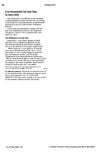 1 citations,
May 1998 in “Inpharma Weekly”
1 citations,
May 1998 in “Inpharma Weekly” Finasteride works for male hair loss only.
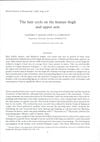 67 citations,
July 1985 in “British journal of dermatology/British journal of dermatology, Supplement”
67 citations,
July 1985 in “British journal of dermatology/British journal of dermatology, Supplement” Men's thigh hair grows longer and has a longer growth cycle than women's, but arm hair growth is similar between genders.
 8 citations,
January 1986 in “Journal of hepatology”
8 citations,
January 1986 in “Journal of hepatology” Men with liver cancer have higher levels of a specific testosterone byproduct in their liver and blood, despite overall lower male hormone levels.
 June 2007 in “Men in Nursing”
June 2007 in “Men in Nursing” The document emphasizes early detection and treatment of men's skin conditions and recommends protective measures and appropriate treatments for different age groups.
 April 2023 in “Elsevier eBooks”
April 2023 in “Elsevier eBooks” Men may have a condition similar to PCOS, possibly indicated by early hair loss.
 17 citations,
January 2016 in “American Journal of Epidemiology”
17 citations,
January 2016 in “American Journal of Epidemiology” Men with male pattern baldness have a higher risk of dying from prostate cancer.
 December 2006 in “8th European Congress of Endocrinology incorporating the British Endocrine Societies”
December 2006 in “8th European Congress of Endocrinology incorporating the British Endocrine Societies” Men with early hair loss and hormonal changes like PCOS could be the male equivalent of PCOS, not linked to metabolic syndrome.
January 2023 in “Singapore Medical Journal” Men with androgenetic alopecia have unique metabolomic patterns that could help develop targeted treatments.
December 2022 in “Biomedicine” Men with early onset hair loss are more likely to have high uric acid levels.
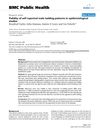 32 citations,
December 2004 in “BMC Public Health”
32 citations,
December 2004 in “BMC Public Health” Men can report their own balding patterns well enough for large health studies.
1 citations,
March 2022 in “Irish Journal of Medical Science” Men with androgenetic alopecia and hypertension may experience more severe COVID-19.
 23 citations,
October 2006 in “Journal of Investigative Dermatology”
23 citations,
October 2006 in “Journal of Investigative Dermatology” Men with baldness have higher levels of specific proteins, suggesting local hormone production may play a role in hair loss.
 21 citations,
January 1991 in “Dermatology”
21 citations,
January 1991 in “Dermatology” Men with male pattern hair loss have different levels of certain hormones compared to men without hair loss.
19 citations,
July 2017 in “Clinical and experimental dermatology” Men with lichen planopilaris had earlier onset than women, and treatment usually improved the condition.
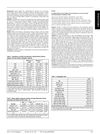 October 2013 in “Journal of the American College of Cardiology”
October 2013 in “Journal of the American College of Cardiology” Men with male pattern baldness have increased arterial stiffness.

Men with higher body mass index (BMI) in Taiwan tend to have more severe hair loss.
 March 2012 in “Dermatology Times E-News”
March 2012 in “Dermatology Times E-News” Men with pattern baldness may have a higher risk of prostate issues.
 January 2021 in “Journal of The European Academy of Dermatology and Venereology”
January 2021 in “Journal of The European Academy of Dermatology and Venereology” Men with hair loss who take a certain type of medication may experience fewer COVID-19 symptoms.
 February 2021 in “International journal of men's social and community health”
February 2021 in “International journal of men's social and community health” Bald men's facial expressions are seen more negatively, and many men are dissatisfied with their bodies, including hair loss.
11 citations,
October 2017 in “Dermatologic Surgery” Men need tailored laser and energy-based cosmetic treatments.
 90 citations,
March 2017 in “JAMA Internal Medicine”
90 citations,
March 2017 in “JAMA Internal Medicine” Men over 66 taking medication for prostate enlargement have a higher risk of depression and self-harm, especially in the first 18 months of treatment.
 January 2025 in “Clinical and Experimental Optometry”
January 2025 in “Clinical and Experimental Optometry” Men with androgenetic alopecia may have more severe dry eye and meibomian gland dysfunction.
 8 citations,
June 2020 in “International Journal of Dermatology”
8 citations,
June 2020 in “International Journal of Dermatology” Men with early hair loss have lower vitamin D levels.
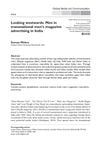 2 citations,
October 2017 in “Global Media and Communication”
2 citations,
October 2017 in “Global Media and Communication” The conclusion is that top men's magazines in India promote Western ideals of masculinity, favoring fair-skinned, youthful, and Western Caucasian men.
 41 citations,
August 2007 in “British Journal of Dermatology”
41 citations,
August 2007 in “British Journal of Dermatology” Men with Kennedy disease have less chance of hair loss.
10 citations,
November 2017 in “Dermatologic clinics” Men of different ethnicities are more often getting cosmetic treatments, and doctors should consider their specific skin types and cultural standards.
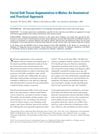 14 citations,
August 2017 in “Dermatologic surgery”
14 citations,
August 2017 in “Dermatologic surgery” Men are getting more facial fillers, and doctors should use different techniques and fillers for men's unique facial features to get natural results.
 March 2021 in “Journal of Babol University of Medical Sciences”
March 2021 in “Journal of Babol University of Medical Sciences” Men with androgenetic alopecia (hair loss) are more likely to have fatty liver disease than those without hair loss.
 54 citations,
May 1998 in “Urology”
54 citations,
May 1998 in “Urology” Men with enlarged prostates often have more severe baldness.

Men with male pattern baldness may have a higher risk of heart problems.
























